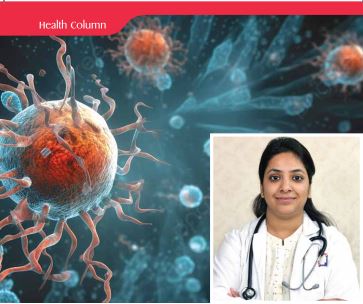Dr. Pragati Singhal, MBBS, MS (General Surgery), Fellowship in Surgical Oncology and Breast Oncoplasty (Tata Medical Center) Consultant and Breast Oncosurgeon
Female breast cancer is the most commonly diagnosed cancer globally. One in eight women is diagnosed with breast cancer worldwide. Although breast cancer poses a significant health challenge, recent advances are offering new hope and improved outcomes for patients around the world. Breast oncology is entering a new chapter in this era of dynamic advances.
Self-breast examination, screening, and early detection are critical components in the fight against breast cancer. Screening mammograms have significantly contributed to the decline in breast cancer deaths through early diagnosis and treatment.
Treatment options for breast cancer include surgery, chemotherapy, radiotherapy, targeted therapy, immunotherapy, and hormone therapy. The selection and sequencing of treatment may vary based on individual patient factors and preferences. The goal of treatment is to not only eradicate cancer but also to preserve the quality of life and overall well-being.
Breast cancer surgery is a frequently used treatment aimed at removing cancerous tissue from the breast. The type of surgery depends on the stage and type of breast cancer. While mastectomy was previously the standard treatment, advances in surgical techniques and reconstructions have made it possible for women to undergo less invasive surgeries with positive cancer outcomes. Techniques such as oncoplastic surgery combine tumour removal with plastic surgery.
An overview of common surgical procedures:
l Mastectomy: skin-sparing, nipple-sparing
l Breast-conserving surgery with or without oncoplasty
l Autologous flap reconstruction
l Reduction mammoplasty
l Implant-based reconstruction
l Sentinel lymph node biopsy/axillary clearance
Emerging therapies such as immunotherapy offer promise for the future of breast cancer treatment, alongside advancements in understanding the molecular and genetic makeup of the disease, paving the way for personalised treatment approaches.
Preventing breast cancer requires a comprehensive and lifelong commitment. This involves regular testing and making lifestyle modifications. By adopting a complete strategy, individuals can not only prevent breast cancer but also improve their overall well-being.






